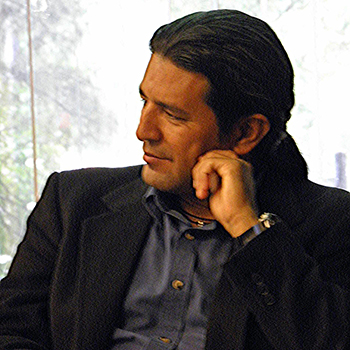
Guatemala Conference: Emilio del Valle Escalante
USC Shoah Foundation Center for Advanced Genocide Research will host the international conference “A Conflict? Genocide and Resistance in Guatemala,” at the University of Southern California, Sept. 11-14, 2016. The scholars profiled in this series were each selected to present their research at the conference.
Emilio del Valle Escalante will bring the indigenous Mayan perspective to the conference with his presentation about writer Sabino Esteban Francisco.
Francisco grew up in the jungles of Guatemala and lived with the Communities of Population in Resistance (CPR), a group of 20,000 Mayan refugees in the 1980s. In his book of poetry Gemido de huellas (The Moan of Footprints), Francisco writes about his experiences evading the Guatemalan army and surviving in the jungles of Ixcan, in northern Guatemala.
Escalante, professor of romance studies at University of North Carolina, Chapel Hill, is studying the work of 11 contemporary Mayan writers, including Francisco. He’s interested in how they respond to the destruction and disappearance of their own communities during the Guatemalan Genocide.
“I argue that literature is working as a way to reconstruct memory, the social body, to dignify our identity,” Escalante said.
In his presentation, Escalante will talk about how Francisco’s poetry re-writes, or “re-rights” history to include the historical memory of the CPR and other Mayan survivors of the armed conflict.
“I argue that literature is working as a way to reconstruct memory."
Escalante, who is Q’ichan Mayan himself, said it’s important that the perspectives of Mayans themselves are included in academic scholarship and discussion about the genocide.
“Many people are talking about [the genocide] but I see they are not talking about it from the perspective of Mayan peoples, how we are theorizing the experience itself, how we are contributing, and adding the indigenous component to the genocide,” he said. “[Discussing] how we can reconstruct the Mayan social body by paying attention to what indigenous people are saying and proposing is really important.”
At the conference, Escalante is looking forward to working with the other scholars and hearing their thoughts on his work. He hopes the conference helps solidify a network of scholars who can share ideas and continue learning from each other.
“I hope these conversations don’t only remain in the United States but we can bring them back to the people in Guatemala,” he said.